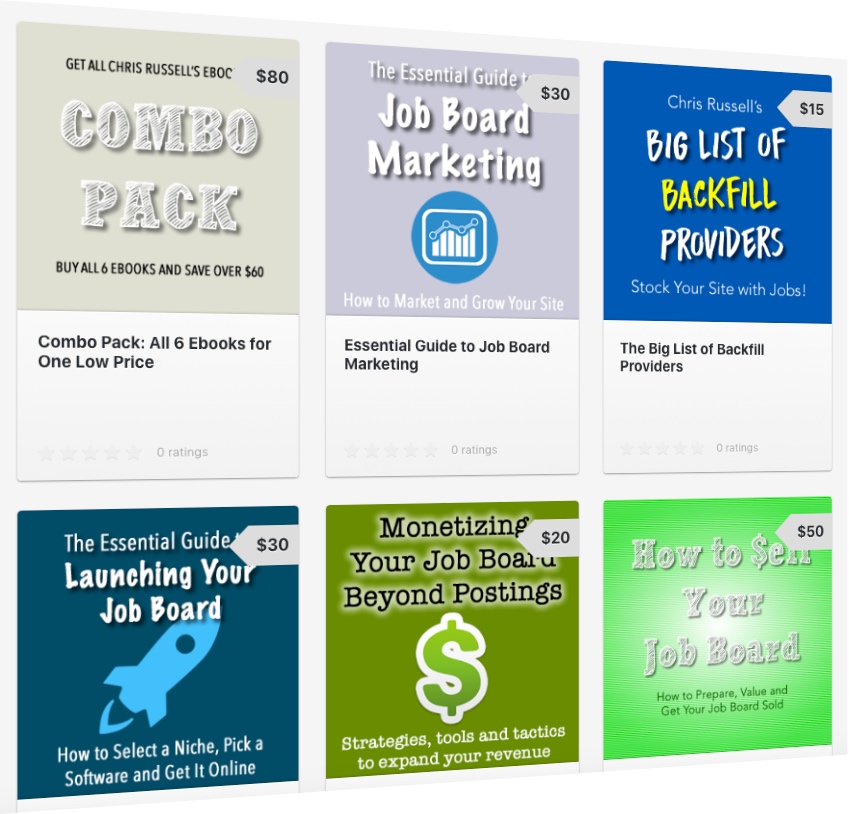Every job board, whether local, niche or national, should be creating, sharing and promoting all aspects of a job search and careers. I can’t emphasize this enough. If you aren’t willing or able to crank out good content to your audience then perhaps running a job board is not for you. The more content you create the more free traffic you will get.
As a general rule, you should be creating at minimum 2 blog posts per week geared towards job seekers and/or employers.
However, new job sites should blog regularly and consistently at least 3-5 times per week. The more content you can create the more quickly Google will send start sending you search engine traffic. In my experience it takes about six months to a year to rank for various keywords. A lot depends on the niche you are in and how good your content is.
Whatever niche you serve, it’s important that you create content your users will want to read. That means you have 2 audiences to please, employers and job seekers. Write articles for both.
If you want to know what to write for job seekers, read what the other top career blogs are doing and mimic them. Sites like CareerRealism and CareerCloud are good examples. For recruiters, vendors such as Greenhouse and SmartRecruiters have excellent B2B blogs to emulate.
These recruiting software vendors treat their blog almost as an individual news source and publish great content about attracting talent. SimplyHired’s blog does a nice job of content creation for both recruiter and candidate.
Content Marketing suggestions:
- Make lots of lists like ‘5 ways to boost your resume‘. People love lists as they are easily scannable and they tend to be shared a lot online.
- Use pictures. Get job related images from sites like Shutterstock, or if you have time, make your own. Every blog post should have an image.
- Make your writing concise and break it up into chunks. For example I like to keep my paragraphs to 3 or 4 sentences at most
- Craft good attention getting headlines. (Google how to do that!)
- Create a consistent schedule that you can stick to. In other words don’t burn yourself out.
- Video – create your own [insert niche here] jobs channel on Youtube. Anything you write about can be voiced within a video. A video channel is also great for SEO.
Where to get your content:
- Pay for it. Hire career coaches or industry experts, they always want to write and many will for free in exchange for exposure. Expect to pay around $50 for a quality article. You might find some writers on Fiverr too (just be wary of the quality).
- HARO – Stands for Help A Reporter Out. This site has a massive list of experts who will answer your query about any topic you can think of. I have used it many times in the past to get experts to comment on various job search and recruiting topics.
- Your users. Ask them if they want to contribute as guest authors. Tell them they can boost their personal brand by writing for you. Many of them are probably experts in their field.
- Your employees. Ask your staff to contribute something about working or recruiting in corporate tax.
- Youtube. There are thousands of career videos on Youtube almost all of which are embeddable for free.
- Facebook groups. Find groups in your niche, and pose your questions. Then use the answers as quotes in your post.
Types of content:
- Anything about resumes. Give advice. Get visual… show examples. Most people don’t know how to write a good resume that gets results. This is a topic that never gets old.
- Q&A’s – I like to do email Q&A posts with industry experts and then publish them word for word as a blog post. All you have to do is come up with the questions. They do the rest!
- For job seekers – Interview tips, job search advice, networking advice, online job search tactics, how to get a job in [industry name], typical salaries for that industry, what recruiters look for in a resume, etc.
- For employers – how to write better job postings, recruiting tips, salary data trends, job trends, industry news and more. Interview your employer clients about their jobs and company culture. Perhaps profile them on your blog.
- If you have staff, leverage your team’s knowledge to help write content. And leverage their networks by liking/sharing your content across social media. Involve them to amplify your brand.


